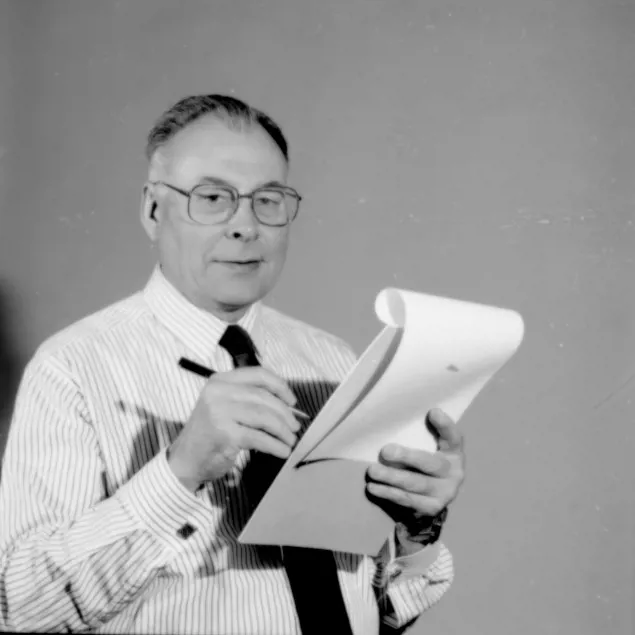EUR ING Professor R.D. Langman BSc CEng FIET, August 1930 – April 2020
Published: Mon 29 Jun 2020
Published: Mon 29 Jun 2020
An innovator at the forefront of research and development, EUR ING Professor R. David Langman BSc CEng FIET, passed away on 2 April 2020 in Stratford-upon-Avon, following a short illness.
Born in Portsmouth in 1930, and following his education at Northampton Town and County Grammar School, he undertook an apprenticeship in electrical and mechanical engineering. He graduated from London University in Engineering and Mathematics and then received a post-graduate qualification in Information Technology from Carnegie Mellon University.
His career spanned over fifty years working across the manufacturing, steel and electricity supply industries, focused on research and development, before latterly taking up related roles in academia.

He started out with English Electric, working at Nelson Research Laboratories on the early development of automatic control systems and computing. He then moved to United Steel, after being invited to head up a new Automation Control section out of Swindon Laboratories in Rotherham. During this period he also took up a secondment with Jones and Laughlin Steel Company in the United States of America.
Back in the UK, in 1966 he moved to the Electricity Council’s Research Centre at Capenhurst to become Head of Industrial Projects, before becoming a Fellow of the IET in 1972 and transferring to work at Millbank. Throughout his career, he published extensively on an array of topics, including large scale capital plants, industrial processes and various light engineering topics. He was involved in developing innovative methods of process control and measurement, holding several patents.
Making the move into the world of academia in 1980, he was appointed as Head of the Electricity Utilisation Studies Unit at Cambridge University, alongside his roles as a visiting Professor of Aston University and a Deputy Director at Worcester Polytechnic (USA). He was Chairman of the Education and Training Committee of British Foundrymen and spent considerable energy shaping both the policy and curriculum enabling Continuing Professional Development for practising engineers. He lectured internationally, across Europe, and in both South Africa and Japan.
Following his retirement from academia, he ran his own Engineering Consultancy and moved to Stratford-upon-Avon, Warwickshire. He will be fondly remembered for his work on automatic control systems, commitment to Engineering education in the UK, local activism for the elderly and his endless quest for improving his own knowledge. He is survived by his wife Jean, son David, daughter Jennifer and their families.